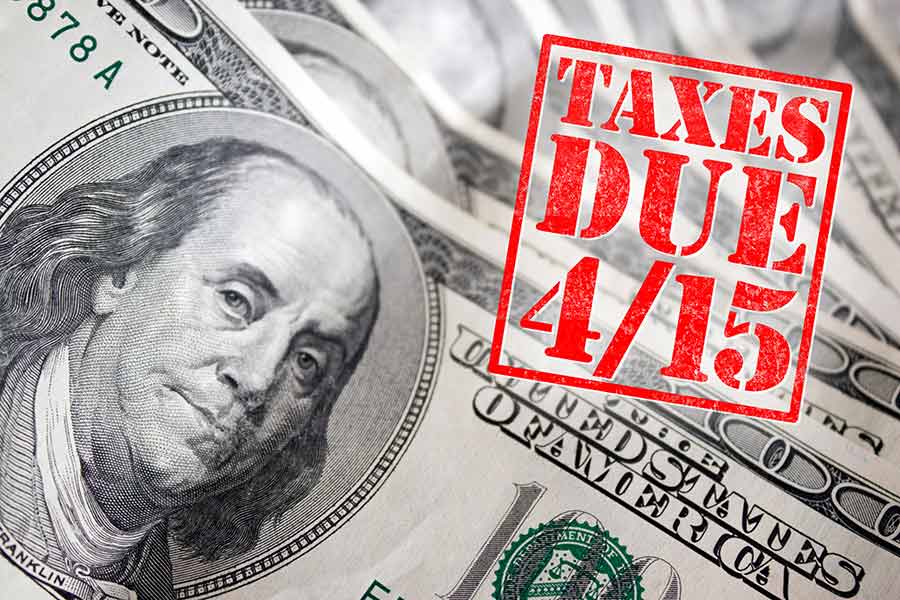If you are going to miss the April 15th tax deadline you still have time to complete your return if you requested an extension or request one by April 15th. Taxpayers who qualify can get an additional six months to file, which can be helpful if you’re still trying to get your paperwork together. While the extra time can provide some temporary relief, it can also lead to confusion if you’re not sure how the process works. Here’s a look at some of the most common misconceptions you need to be aware of if you filed an income tax extension.
Myth #1: More Time to File Means More Time to Pay
Filing an extension means you don’t have to file your return right away but it doesn’t mean you can put off paying what you owe to Uncle Sam. The IRS imposes two types of penalties against taxpayers who don’t file their taxes on time. The first is a failure-to-file penalty, which is calculated as 5 percent of the unpaid taxes due. The penalty starts accruing the day after the tax filing deadline and can add up to a maximum of 25 percent of your unpaid tax.
As long as your extension request has been approved, you can avoid the failure-to-file penalty but you may be subject to a separate penalty if you owe taxes. As of 2014, the failure-to-pay penalty is 1/2 of 1 percent of your total unpaid taxes. The penalty is applied on a monthly basis beginning the day after the tax filing due date. If you filed an extension, the only way to avoid this penalty is if you paid at least 90 percent of your taxes due when you made your request. If you wait until the extension deadline to pay, your tax bill could be inflated significantly thanks to penalties and interest.
Myth #2: Filing an Extension May Increase Your Audit Risk
Of the millions of returns it receives each year, the IRS only audits a small percentage. While some taxpayers are selected at random, others are targeted based on certain red flags that may be triggered by conflicting information on their return. Unusual deductions, underreporting income or even simple mathematical errors can be enough to draw the IRS’s attention. If you’re worried about getting hit with an audit because you filed an extension, the odds might be lower than you think.
Requesting an extension could actually work in your favor when it comes to avoiding an audit for a couple of reasons. If you’re still trying to track down your tax papers, asking for more time gives you a chance to go over your information carefully to make sure everything is correct. Time is also on your side from a statistical standpoint. Generally, the IRS selects returns for audits within the first six to twelve months after the filing deadline. If you wait until the extension deadline to file, there’s a better chance the audit quota will be reached.
Myth #3: You Can Put Off Filing Indefinitely If You’re Owed a Refund
If you’re expecting a fat refund check you may think filing an extension isn’t necessary since you can get your money from the IRS anytime, right? Wrong. The IRS imposes a three-year statute of limitations on how long you have to claim a refund. Waiting to file essentially means you’re giving the government an interest-free loan. Put off filing too long and you’ll end up forfeiting the cash altogether.
Even if you’re planning to get money back, filing an extension is a smart move. Depending on where you live, you may be required to file a federal extension if you also need a state extension because you owe taxes. You can also extend the three-year statute of limitations by an additional six months. While you won’t be charged a penalty for waiting to file, it really doesn’t make sense to delay getting your hands on the cash.
For most Americans, the end of the tax season brings a huge sigh of relief. If you’re one of the millions who filed an extension this year, you’ll still be feeling the pressure a little longer. Knowing what to expect can take some of the hassle out of filing and minimize any potentially negative impact on your tax situation.



This is a great post as it clears up some issues that will be very helpful for people. I would warn people against filing an extension, and would always encourage them to file on time if possible, however, it is important that they know the facts about it all before they make the decision.